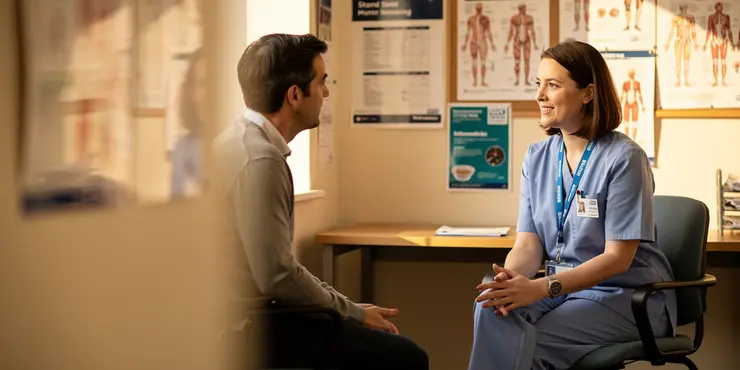
Find Help
More Items From Ergsy search
-
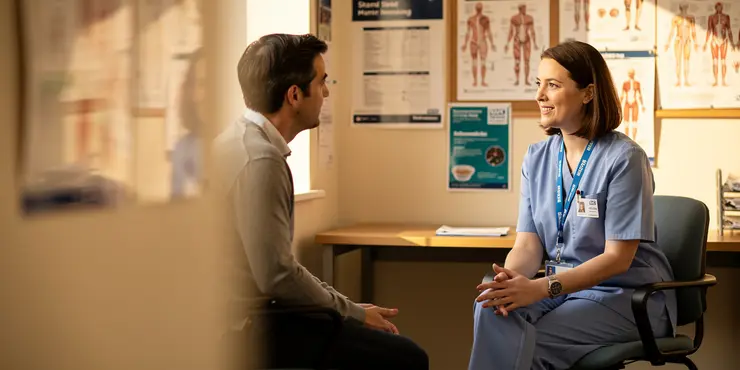
What treatment options are available for bowel cancer?
Relevance: 100%
-
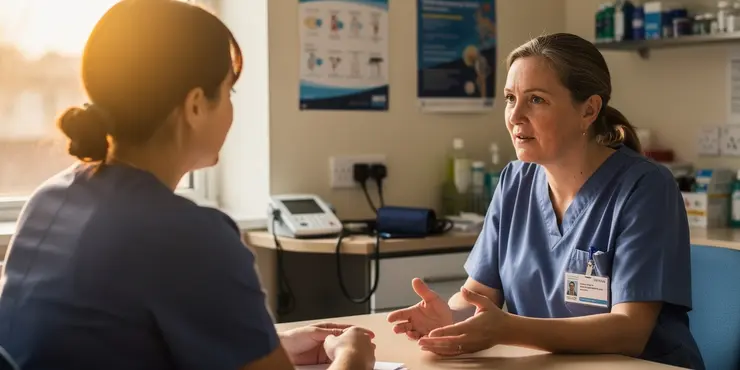
What are the side effects of bowel cancer treatment?
Relevance: 75%
-
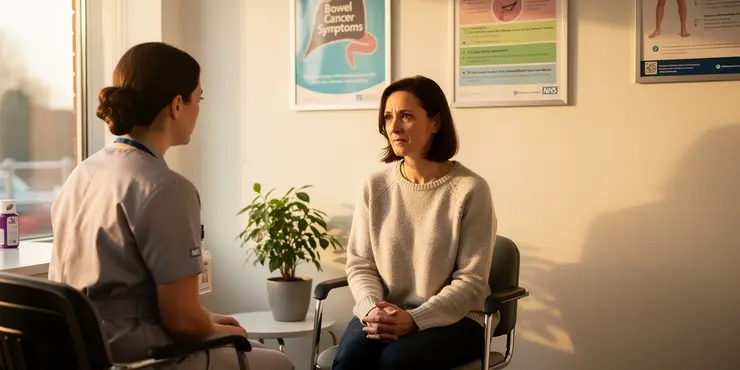
What is Bowel Cancer?
Relevance: 73%
-
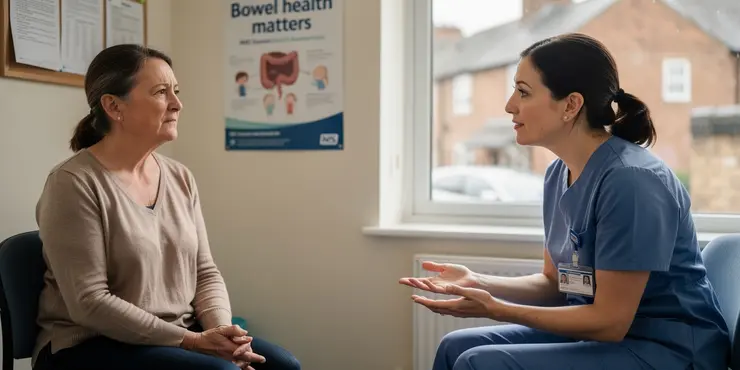
Can bowel cancer spread to other parts of the body?
Relevance: 68%
-

How common is bowel cancer?
Relevance: 67%
-
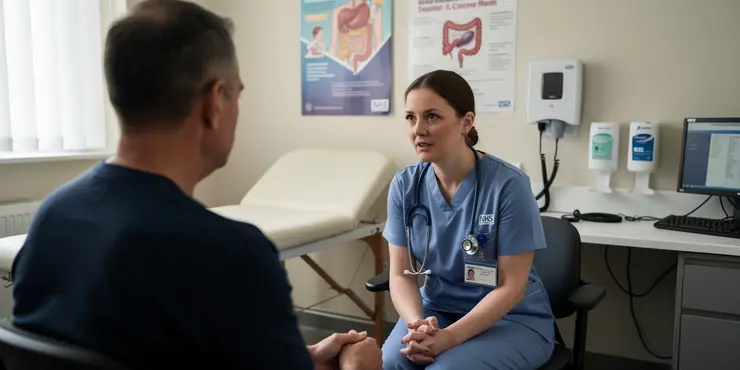
What is the survival rate for bowel cancer?
Relevance: 67%
-
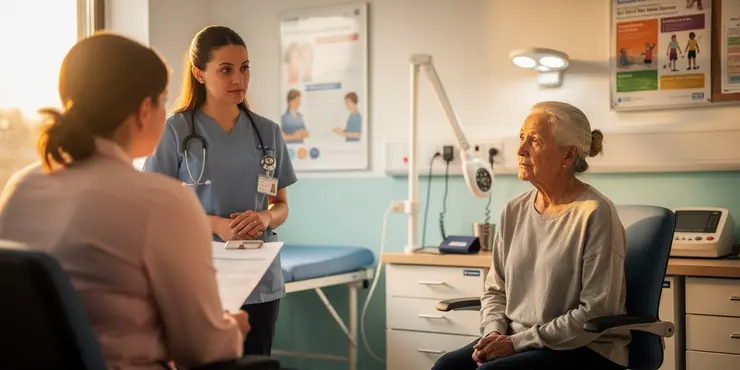
Bowel cancer - Symptoms and signs to look out for
Relevance: 66%
-
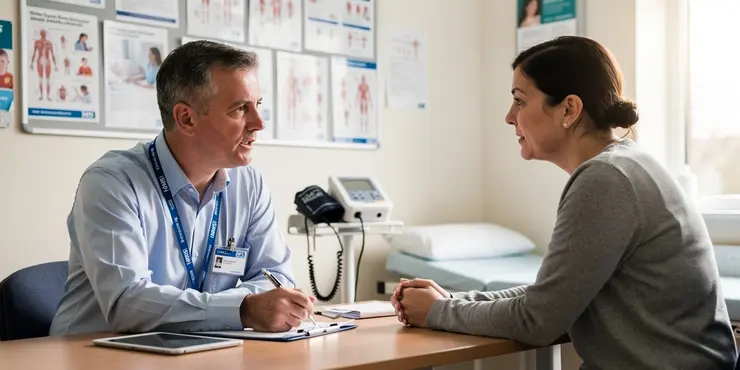
Why is there a surge in bowel cancer?
Relevance: 65%
-
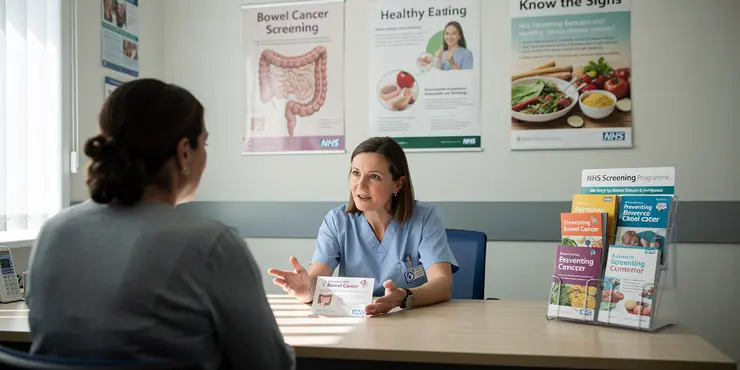
Can bowel cancer be prevented?
Relevance: 64%
-
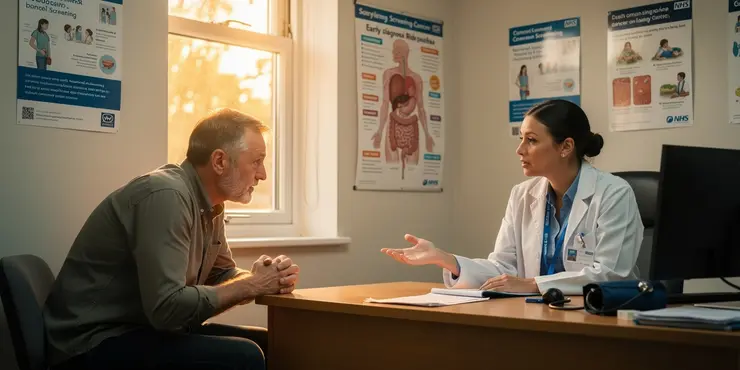
How is bowel cancer diagnosed?
Relevance: 64%
-
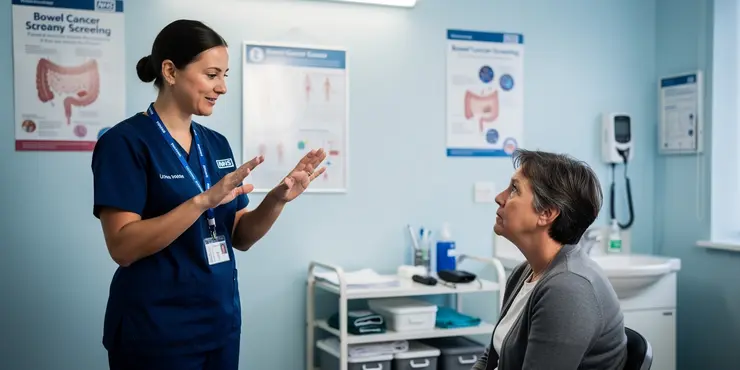
Learn about bowel cancer (British Sign Language version)
Relevance: 63%
-
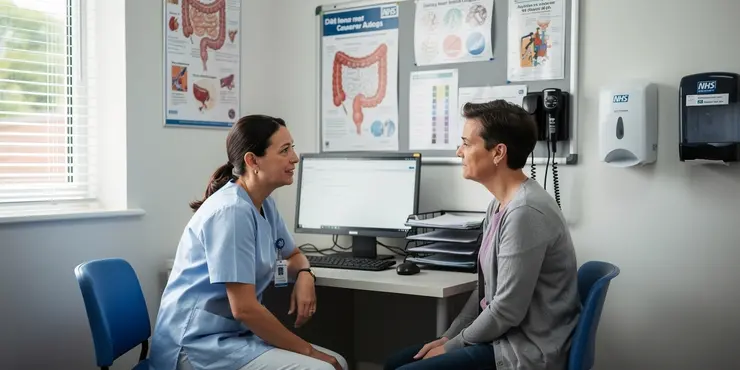
How is the stage of bowel cancer determined?
Relevance: 63%
-

What support is available for individuals diagnosed with bowel cancer?
Relevance: 62%
-

Taking a Genetic Family History - The Conversation (Bowel Cancer)
Relevance: 62%
-

Are there specific benefits of exercise for bowel cancer survivors?
Relevance: 61%
-
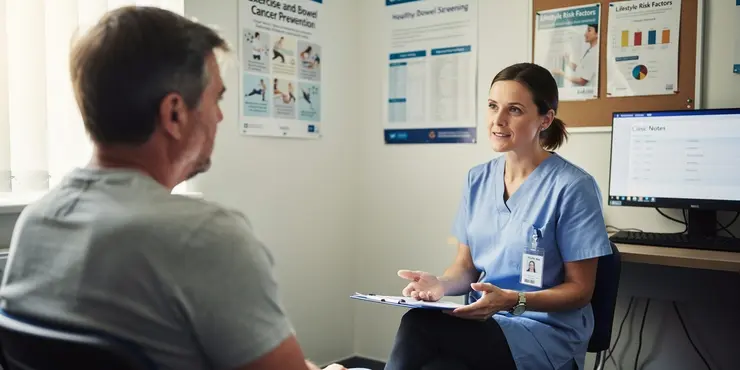
How does exercise impact bowel cancer progression?
Relevance: 61%
-
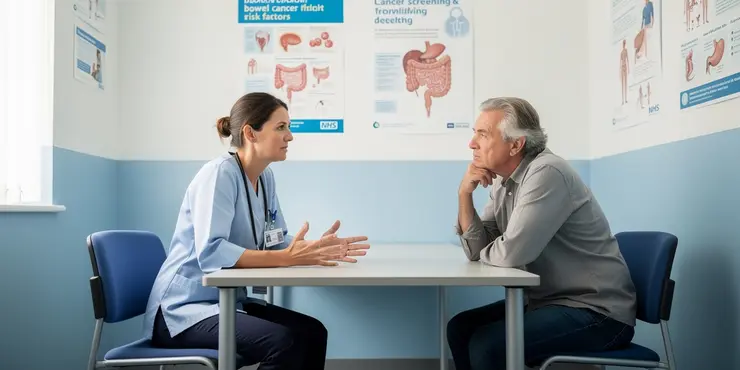
What are the risk factors for bowel cancer?
Relevance: 61%
-
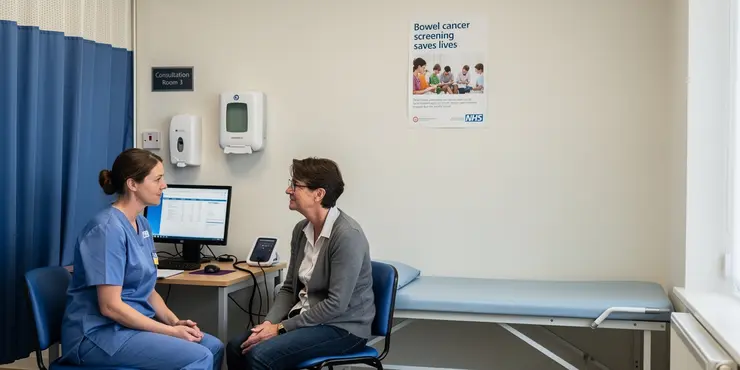
How does increased screening impact bowel cancer statistics?
Relevance: 61%
-
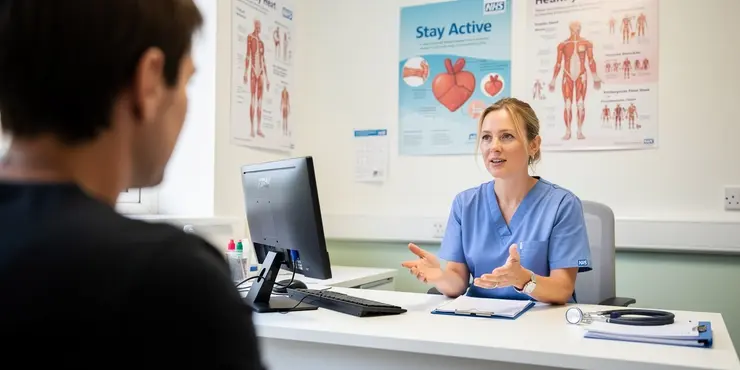
What types of exercise are beneficial for bowel cancer patients?
Relevance: 61%
-
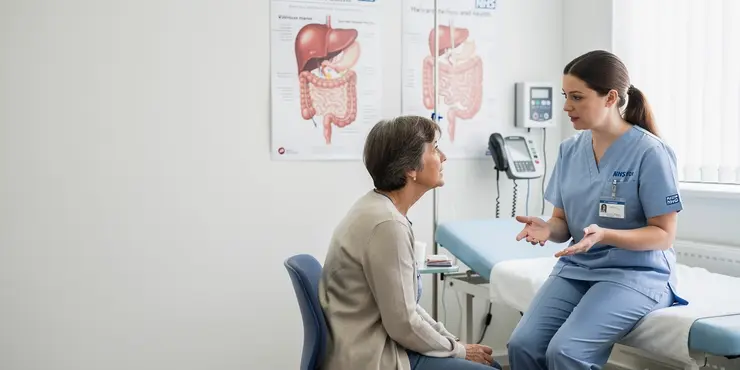
Is diet linked to the rise in bowel cancer?
Relevance: 60%
-

Can exercise help slow down the progression of bowel cancer?
Relevance: 60%
-

Can exercise help slow down the progression of bowel cancer?
Relevance: 59%
-
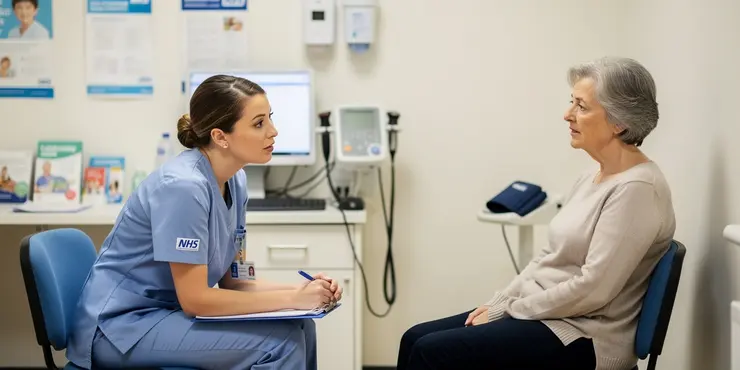
Bowel Cancer
Relevance: 59%
-
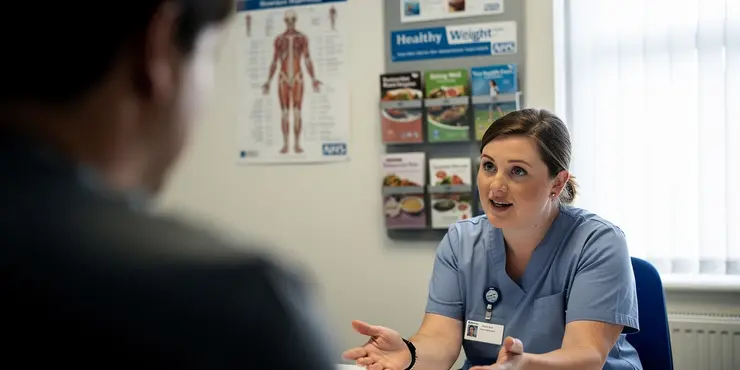
How does obesity affect bowel cancer rates?
Relevance: 59%
-
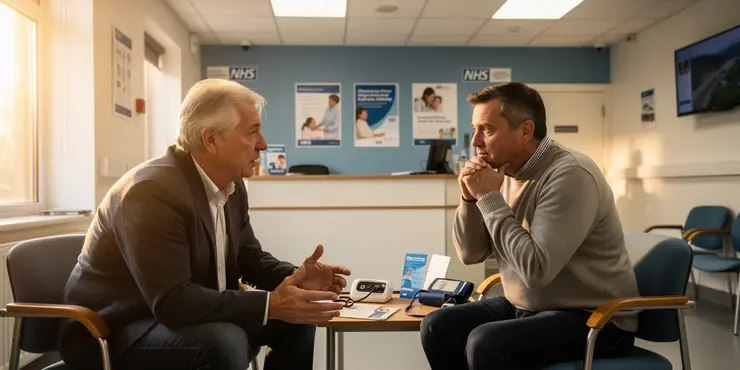
Bowel cancer screening: Alan Titchmarsh and Tommy Walsh | NHS
Relevance: 58%
-
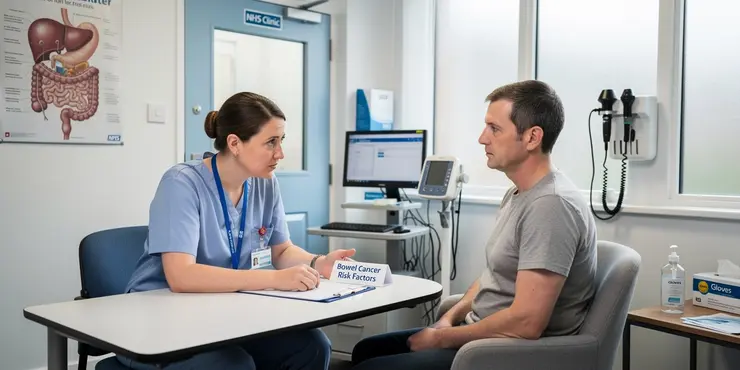
What factors are contributing to the increase in bowel cancer cases?
Relevance: 58%
-
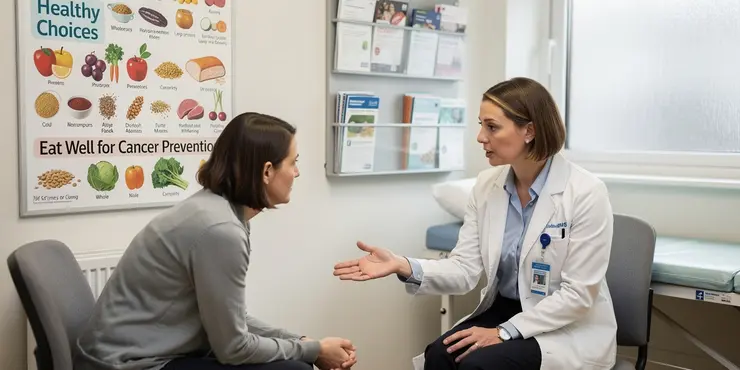
Can lifestyle changes help reduce bowel cancer risk?
Relevance: 58%
-
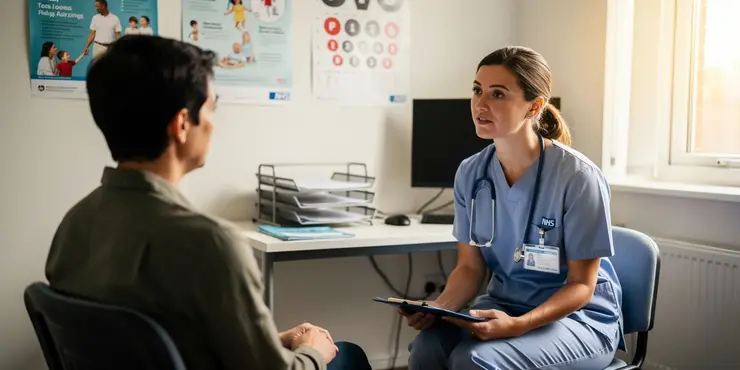
How does family history affect the risk of bowel cancer?
Relevance: 57%
-
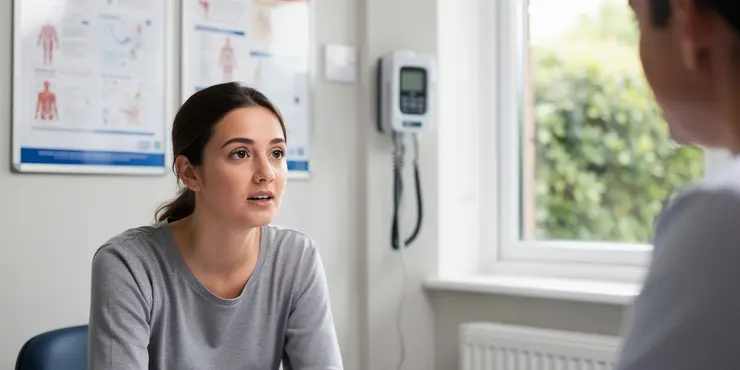
Are younger people being diagnosed with bowel cancer more frequently?
Relevance: 57%
-
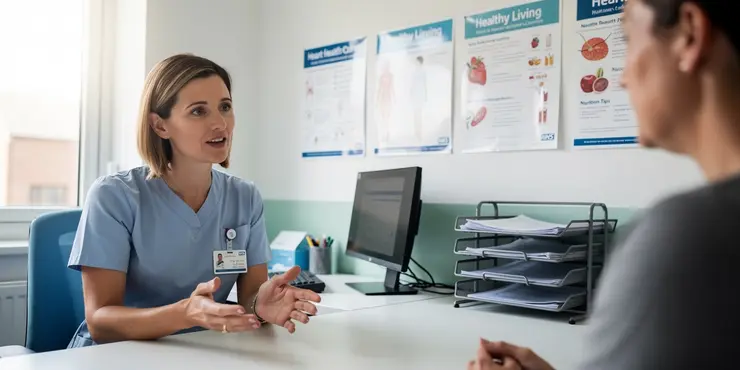
What lifestyle changes can help lower the risk of bowel cancer?
Relevance: 56%
-
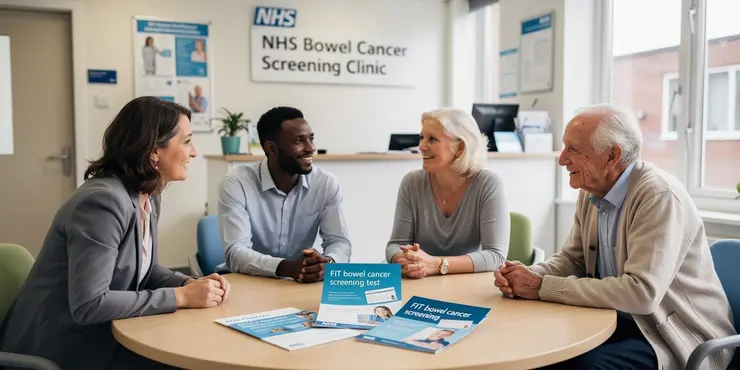
How to do the FIT bowel cancer screening test | Cancer Research UK
Relevance: 54%
-
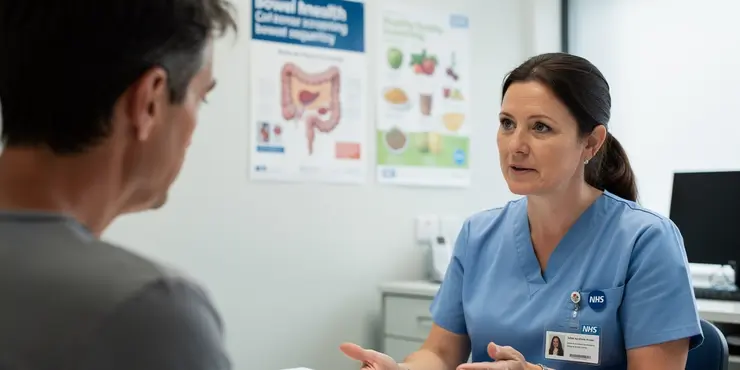
What role does diet play in the risk of developing bowel cancer?
Relevance: 54%
-
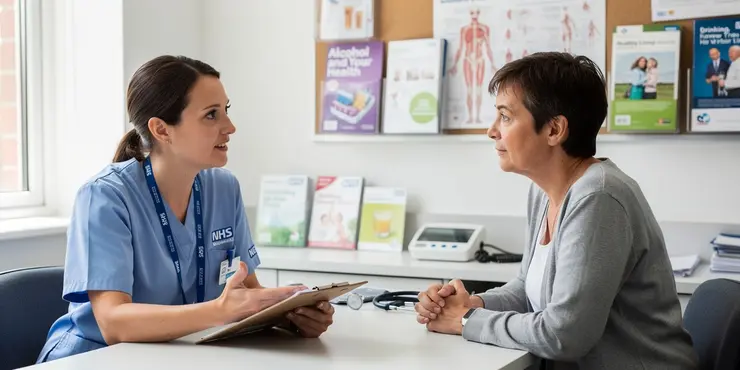
What role does alcohol consumption play in bowel cancer risk?
Relevance: 54%
-
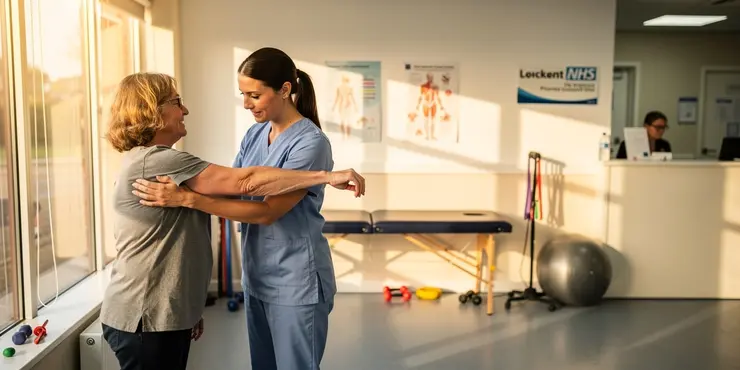
Can exercise help with symptoms of bowel cancer treatment?
Relevance: 53%
-
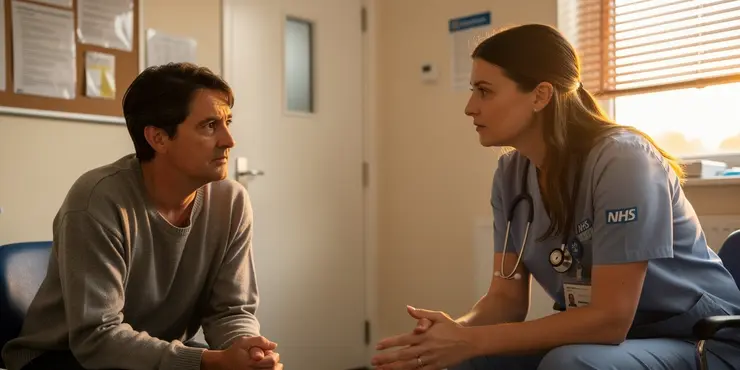
What are the common treatment options for prostate cancer?
Relevance: 52%
-

What factors determine the treatment plan for prostate cancer?
Relevance: 52%
-
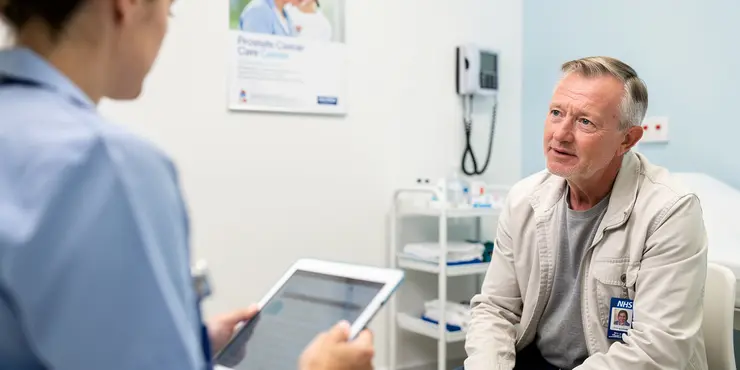
What is active surveillance in prostate cancer treatment?
Relevance: 51%
-
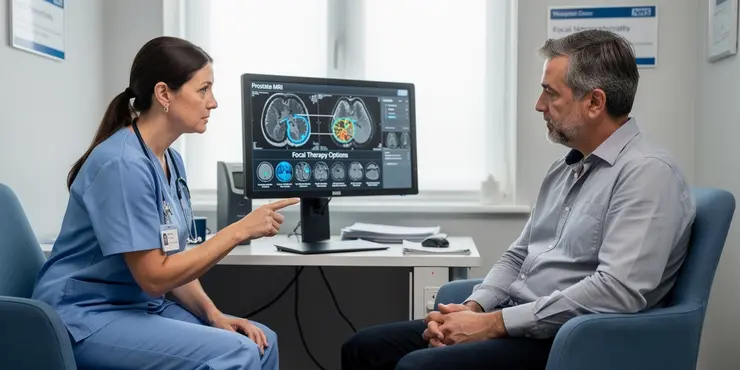
Is focal therapy an option for prostate cancer?
Relevance: 51%
-
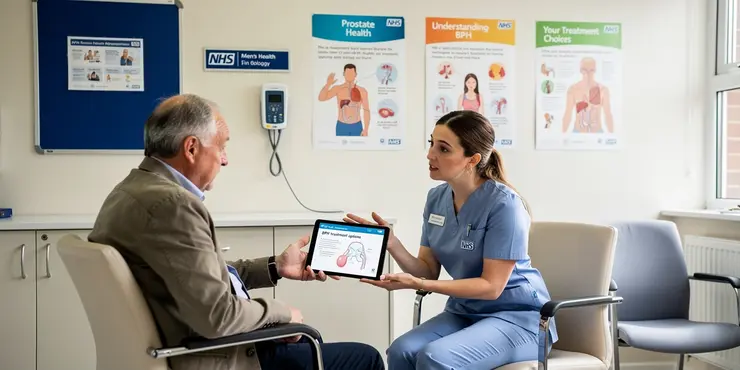
What are the treatment options for BPH?
Relevance: 49%
-
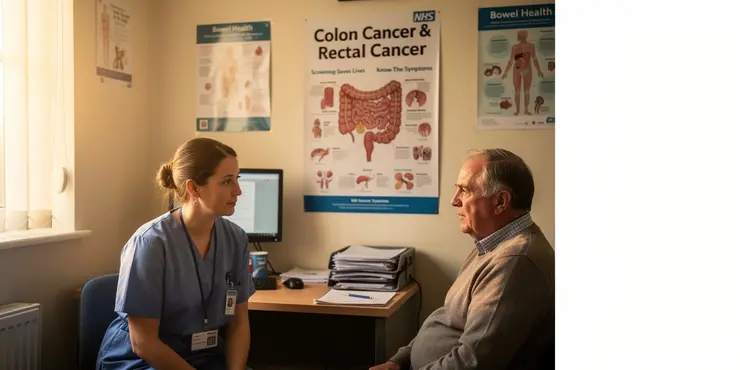
What is the difference between colon cancer and rectal cancer?
Relevance: 49%
Understanding Bowel Cancer Treatment Options
Bowel cancer, also known as colorectal cancer, is a common form of cancer in the UK that affects the large bowel, which is made up of the colon and rectum. Understanding the treatment options available is crucial for those diagnosed as well as their families. The choice of treatment generally depends on the tumor's location, the stage of the cancer, and the patient's overall health.
Surgery
Surgery is often the primary treatment for bowel cancer, especially if the cancer is detected at an early stage. The most common surgical procedure is a colectomy, where part or all of the colon is removed. Depending on the cancer's progression, a partial colectomy might be performed, which involves removing the cancerous part of the colon along with a margin of healthy tissue. In more advanced cases, a total colectomy may be necessary.
Chemotherapy
Chemotherapy involves using drugs to destroy cancer cells and is often used in conjunction with surgery. It may be administered before surgery to shrink tumors or after surgery to eliminate remaining cancer cells and reduce the risk of recurrence. The chemotherapy regimen for bowel cancer typically lasts several months and can include a combination of drugs to enhance efficacy.
Radiotherapy
Radiotherapy uses high-energy rays to target and kill cancer cells. It is more commonly used for rectal cancer than colon cancer. Radiotherapy might be used before surgery to shrink the tumor or after surgery to prevent cancer from coming back. In some cases, it is combined with chemotherapy, known as chemoradiation, to increase the effectiveness of treatment.
Targeted Therapy
Targeted therapy is a newer type of treatment that involves drugs designed to target specific proteins or genes that help cancer cells grow. These therapies can be more effective with fewer side effects than traditional chemotherapy. They are usually used in advanced bowel cancer cases or when the cancer has spread to other parts of the body.
Immunotherapy
Immunotherapy is another innovative treatment option that harnesses the body’s immune system to fight cancer. It works by helping the immune system recognize and attack cancer cells more effectively. Although still under research, immunotherapy shows promise, particularly for cancers that have specific genetic features.
Conclusion
The treatment options for bowel cancer have significantly advanced over the years, allowing for more personalized and effective approaches. Patients should have thorough discussions with their healthcare team to understand the best treatment strategy for their individual situation. Catching the disease early through screening and regular check-ups can greatly improve the outcomes and the effectiveness of these treatments.
Understanding Bowel Cancer Treatment Options
Bowel cancer is also called colorectal cancer. It affects the large bowel, which includes the colon and rectum. It is a common cancer in the UK. Knowing your treatment options is important if you have been diagnosed. It also helps your family understand what to expect. Treatment depends on where the cancer is, how advanced it is, and the person's overall health.
Surgery
Surgery is often the first treatment for bowel cancer. This is especially true if the cancer is found early. The most common surgery is called a colectomy. In this surgery, part or all of the colon is taken out. If the cancer has not spread much, only the part with cancer is removed. This is called a partial colectomy. If the cancer is more advanced, the whole colon might be taken out, which is a total colectomy.
Chemotherapy
Chemotherapy uses drugs to kill cancer cells. It is often used with surgery. Sometimes it is given before surgery to make the cancer smaller. Other times, it is given after surgery to kill any remaining cancer cells. This also helps stop the cancer from coming back. Chemotherapy usually lasts a few months and might use different drugs together to work better.
Radiotherapy
Radiotherapy uses strong energy rays to kill cancer cells. It is mostly used for rectal cancer. Sometimes it is done before surgery to make the tumor smaller. Other times, it is done after surgery to help stop the cancer from returning. Radiotherapy can be combined with chemotherapy to work better. This combined treatment is called chemoradiation.
Targeted Therapy
Targeted therapy uses drugs to focus on specific parts of cancer cells. These parts help cancer cells grow. This type of therapy can be more effective and have fewer side effects than regular chemotherapy. It is usually used for advanced bowel cancer or if the cancer has spread.
Immunotherapy
Immunotherapy helps the body's immune system fight cancer. It helps the immune system find and attack cancer cells. This treatment is still being studied, but it looks promising. It might work well for certain types of cancer with specific genetic features.
Conclusion
Treatment options for bowel cancer have improved a lot over the years. This allows for personalized and effective treatments. Patients should talk with their healthcare team to find the best treatment plan. Finding cancer early through screenings and check-ups can greatly improve how well the treatments work.
Frequently Asked Questions
What are the main treatment options for bowel cancer?
The main treatment options for bowel cancer are surgery, chemotherapy, radiation therapy, targeted therapy, and immunotherapy.
How is surgery used to treat bowel cancer?
Surgery is typically used to remove the tumor and some surrounding healthy tissue in the bowel. It is often the first line of treatment for bowel cancer that has not spread.
What types of chemotherapy are used for bowel cancer?
Chemotherapy for bowel cancer may include drugs like 5-fluorouracil, capecitabine, oxaliplatin, and irinotecan, which can be used alone or in combination.
When is radiation therapy recommended for bowel cancer?
Radiation therapy may be recommended for rectal cancer, either before surgery to shrink the tumor or after surgery to eliminate remaining cancer cells.
What is targeted therapy for bowel cancer?
Targeted therapy involves the use of drugs that specifically target cancer cell growth, such as bevacizumab, cetuximab, or panitumumab. These are usually used for advanced bowel cancer.
How does immunotherapy work for bowel cancer?
Immunotherapy helps the body's immune system recognize and attack cancer cells, using drugs such as pembrolizumab or nivolumab for certain types of bowel cancer.
What is the role of palliative care in bowel cancer treatment?
Palliative care focuses on relieving symptoms and improving quality of life for patients, and can be integrated with other treatments at any stage of cancer.
Is laparoscopic surgery an option for bowel cancer?
Yes, laparoscopic surgery, which is minimally invasive, may be an option for some patients with bowel cancer, offering shorter recovery times.
Can clinical trials provide treatment options for bowel cancer?
Yes, participating in clinical trials can provide access to new and experimental treatments for bowel cancer.
Are alternative therapies effective for bowel cancer treatment?
Alternative therapies are not proven to cure bowel cancer but may be used alongside medical treatments to help manage symptoms and improve well-being.
How is the treatment for colon cancer different from rectal cancer?
While both are types of bowel cancer, rectal cancer often requires a combination of radiation, chemotherapy, and surgery due to the location of the rectum.
Can bowel cancer be treated with a single type of therapy?
Treatment often involves a combination approach depending on the cancer stage, although early stage bowel cancer may be treated with surgery alone.
What factors influence treatment choices for bowel cancer?
Factors include the cancer's stage, location, genetic characteristics, the patient's overall health, and personal preferences.
Is adjuvant therapy necessary after surgery for bowel cancer?
Adjuvant therapy, such as chemotherapy or radiation, may be recommended after surgery to lower the risk of cancer recurrence.
How do genetic mutations affect bowel cancer treatment?
Specific genetic mutations can influence treatment plans, as certain targeted therapies are effective only for tumors with specific genetic profiles.
What is the typical duration of chemotherapy for bowel cancer?
Chemotherapy cycles may vary, commonly ranging from three to six months, depending on the regimen and cancer stage.
Do treatment options differ for metastatic bowel cancer?
Yes, treatment for metastatic bowel cancer may involve systemic therapies like chemotherapy and targeted therapies, often focusing on prolonging life and symptom control.
What is neoadjuvant therapy in the context of bowel cancer?
Neoadjuvant therapy, which includes chemotherapy and/or radiation, is administered before surgery to shrink the tumor, making it easier to remove.
What role does a multidisciplinary team play in bowel cancer treatment?
A multidisciplinary team, including oncologists, surgeons, radiologists, and nurses, collaborates to create a comprehensive, personalized treatment plan.
How can a patient decide on the best treatment option for bowel cancer?
Patients should discuss with their healthcare team, considering factors like treatment goals, potential side effects, and personal values to decide on the best option.
What are the main ways to treat bowel cancer?
Bowel cancer can be treated in different ways. Here are some options:
- Surgery: Doctors can do an operation to remove the cancer.
- Chemotherapy: This uses strong medicine to kill cancer cells.
- Radiotherapy: This uses X-ray beams to destroy cancer cells.
- Targeted therapy: This uses drugs to target specific parts of cancer cells.
If you want help to understand more, you can:
- Ask your doctor questions.
- Use online tools that explain things clearly.
- Talk to a support group.
The main ways to treat bowel cancer are:
- Surgery - doctors can take out the cancer
- Chemotherapy - special medicine to kill cancer cells
- Radiation therapy - uses strong rays to kill cancer cells
- Targeted therapy - medicine that aims right at the cancer
- Immunotherapy - helps your body fight the cancer
If you find this hard to understand, use pictures or ask someone to explain. You can also use audiobooks or get help from a doctor or nurse.
How does surgery help with bowel cancer?
Surgery is an operation. Doctors do it to take out cancer in the bowel.
Here are some ways it helps:
- Doctors remove the part of the bowel with cancer.
- This can stop cancer from growing and spreading.
- Sometimes, doctors also take out some nearby areas to make sure all cancer is gone.
If you're learning about bowel cancer, you can use:
- Pictures: Drawings can show where cancer is in the bowel.
- Videos: Short clips can explain what happens during surgery.
- Help from others: Talking to doctors or nurses can be really useful.
The doctor usually does an operation to take out the lump of cancer and a little bit of the healthy area around it in the bowel. This is often the first thing they do to treat bowel cancer that hasn't spread.
What kinds of medicine are used to treat bowel cancer?
Chemotherapy for bowel cancer uses strong medicine. Some of these medicines are called 5-fluorouracil, capecitabine, oxaliplatin, and irinotecan. Doctors can use these medicines by themselves or mix them together to help fight cancer.
When should someone with bowel cancer have radiation treatment?
Doctors might suggest using special rays, called radiation, to treat bowel cancer. This can help to make the cancer smaller or stop it from growing. Not everyone with bowel cancer needs this treatment. The doctor will talk with each person to decide if it is the best choice for them.
Tools like using pictures and videos can help make it easier to understand. You can also ask a doctor or nurse to explain any words you do not know.
Doctors might suggest using special rays to treat rectal cancer. This can be done before an operation to make the tumor smaller or after surgery to get rid of any cancer cells that are left.
What is targeted therapy for bowel cancer?
Targeted therapy is a special treatment for bowel cancer. It uses drugs to find and attack cancer cells. These drugs leave healthy cells alone.
Here’s how it works:
- The drugs look for certain proteins on cancer cells.
- They stick to these proteins and stop the cancer from growing.
- This can help slow down or stop the cancer.
Some ways to help understand better:
- Ask your doctor or nurse to explain slowly.
- Use pictures or videos to learn more.
- Bring someone with you to your appointments to help remember what was said.
Targeted therapy is a way to treat cancer using special medicine. This medicine helps stop cancer cells from growing. Some of these medicines are called bevacizumab, cetuximab, and panitumumab. They are usually used to treat bowel cancer that has spread and is harder to treat.
How does immunotherapy work for bowel cancer?
Immunotherapy helps your body fight cancer. It uses special medicines to make your immune system stronger. The immune system is like a shield that protects you from germs. When you have bowel cancer, the immune system needs extra help.
These medicines help your immune system see the cancer better, so it can fight it more strongly. Sometimes, the medicines give your immune system more power to attack the cancer cells.
If you want to know more, talk to your doctor or nurse. They can explain how these treatments might help you. You can also use websites with easy words and pictures to learn more.
Immunotherapy is a type of medicine that helps your body fight cancer. It helps the body's defense system, called the immune system, find and attack cancer cells. There are special drugs like pembrolizumab and nivolumab that can help with some kinds of bowel cancer.
What does palliative care do for people with bowel cancer?
Palliative care helps make people with bowel cancer feel better.
It helps reduce pain and makes life easier.
Doctors and nurses give special care and support.
People can also talk to someone about their worries. This is called counseling.
Family and friends can help too.
Using simple words and pictures can make things clearer.
Helpful tools like videos can show how palliative care works.
Palliative care helps people feel better and have a good life when they are sick. It can be used with other treatments for cancer at any time.
Can you have keyhole surgery for bowel cancer?
Keyhole surgery is a way to help people with bowel cancer. It uses tiny cuts in the belly. The doctor puts in a small camera. This helps them see inside and fix the cancer.
Keyhole surgery can be good because it might hurt less and help you get better faster.
You can talk to your doctor about it. They can help you decide if it is right for you.
Helpful Tip: Bring someone with you to the doctor, like a friend or family member. They can help you remember what the doctor says.
Support Tool: Use a notebook to write down questions for your doctor. This way, you won't forget what you want to ask.
Yes, some people with bowel cancer might have a special surgery called laparoscopic surgery. This surgery doesn't use big cuts, so it can help people get better faster.
Can clinical trials help treat bowel cancer?
Yes, joining clinical trials can help you try new treatments for bowel cancer.
Do other types of treatments help with bowel cancer?
Here is what you can do:
- Talk to a doctor. They can tell you what works best.
- Use simple language to ask questions.
- Write things down to help remember.
- You can ask someone to help you understand.
Alternative therapies cannot cure bowel cancer. But they can be used with medical treatments to help manage symptoms and make you feel better.
How is treatment different for colon cancer and rectal cancer?
Treatment for colon cancer and rectal cancer is not the same because the colon and the rectum are different parts of the body. Doctors use different ways to help people.
- Colon Cancer: Doctors usually use surgery to remove the cancer. Sometimes they also use medicine called chemotherapy.
- Rectal Cancer: Surgery is also used for rectal cancer, but doctors may also use radiation to shrink the cancer before removing it. They might use chemotherapy too.
If reading is hard for you, you can ask someone to read with you. You can also use an audiobook or a screen reader to help understand better.
It’s important to talk to your doctor about what is best for you.
Rectal cancer and bowel cancer are similar. But because rectal cancer is in the rectum, it usually needs special treatment. This includes radiation, chemotherapy, and surgery.
Can we treat bowel cancer using just one kind of medicine?
Bowel cancer is a sickness in the tummy. Doctors use different ways to help people get better. Sometimes, they might need more than one kind of medicine or treatment to help.
If you know someone with bowel cancer, talk to a doctor for the best help.
Using pictures, talking to someone, or asking for extra help can make things easier to understand.
Doctors use different ways to help treat cancer. What they use depends on how much the cancer has grown. If the bowel cancer is found early, doctors might be able to fix it with just an operation.
What things affect how we treat bowel cancer?
There are different things that help doctors decide the best way to treat bowel cancer. Here are some:
1. Type of Cancer: Doctors will look at the kind of cancer in the bowel.
2. Where the Cancer Is: They find where the cancer is in the bowel.
3. Size of the Cancer: How big or small the cancer is matters.
4. Health of the Person: Your age and health are important too.
5. What the Patient Wants: What you feel about the treatment is important.
If you find it hard to understand, you can:
- Ask someone to read it with you.
- Use a voice assistant to hear the information.
- Ask your doctor to explain in simple words.
There are different things that can affect cancer. These things are:
- How big the cancer is and if it has spread.
- Where the cancer is in the body.
- What the cancer cells are like.
- How healthy the person is overall.
- What the person wants to do.
It's a good idea to talk to a doctor and ask lots of questions. You can also use big pictures and short sentences to help understand better.
Do you need extra treatment after bowel cancer surgery?
If you have had an operation for bowel cancer, you might wonder if you need more help to get better. This extra help is called "adjuvant therapy." It can be things like medicine or other treatments.
To understand more, you can:
- Talk to your doctor. They can explain what is best for you.
- Read information made for kids your age.
- Ask someone to help you with the words.
These things can help you make a good choice and keep you healthy.
After surgery, doctors might suggest extra treatment called chemotherapy or radiation. This is to help make sure the cancer does not come back.
How do changes in genes affect bowel cancer treatment?
Our bodies have tiny parts called genes. Sometimes, these genes change. These changes are called mutations.
If you have bowel cancer, doctors need to know about any mutations. It helps them choose the best treatment.
Some medicines work better if special gene changes are present. So, doctors test your genes to decide on the right treatment.
Here are some ways to make reading easier:
- Use a ruler or finger to follow along as you read.
- Read out loud slowly.
- Ask someone to help read with you.
Changes in genes can affect how doctors decide to treat cancer. Some medicines work only if the cancer has certain gene changes.
How long does chemotherapy for bowel cancer usually last?
Chemotherapy treatment might take different amounts of time. It usually lasts between three to six months. This depends on the type of treatment and how serious the cancer is.
Are there different treatments for bowel cancer that has spread?
When bowel cancer spreads, doctors might use different kinds of treatments. This is because cancer that has spread is not the same as cancer that stays in one place.
If you have questions, talk to your doctor. They can explain what treatments are best for you.
You can also use picture charts or simple diagrams to help understand your treatment. These tools make it easier to see what is happening with your body.
Yes, treatment for bowel cancer that has spread might use strong medicines like chemotherapy. These help make life longer and make people feel better.
What is neoadjuvant therapy for bowel cancer?
Neoadjuvant therapy is a treatment that helps shrink cancer before surgery. If you have bowel cancer, this treatment can make the cancer smaller.
People usually have this treatment to make the surgery easier. It can also help the surgery work better.
If you find reading hard, you can ask someone to explain this to you. You can also use tools like audiobooks or reading apps that read aloud to help you understand better.
Doctors give medicine called chemotherapy or radiation before surgery. This helps to make the tumor smaller, so it is easier to take out in the operation.
How does a team of different doctors help in treating bowel cancer?
A group of different doctors and nurses work together to make a special plan just for you to help you get better. This team includes cancer doctors, surgeons, X-ray doctors, and nurses. They talk to each other to find the best way to help you.
How can someone choose the best treatment for bowel cancer?
If you have bowel cancer, you may need treatment. Choosing the best treatment can be hard, but here are some things that can help:
- Talk to your doctor. They can explain different treatments.
- Write down any questions you have. This will help you remember to ask them.
- Bring a friend or family member with you to appointments. They can help you listen and remember what the doctor says.
- Ask the doctor about what might happen with each treatment. This will help you understand better.
- Think about what is important to you. This might help you make a decision.
- Use pictures, diagrams, or videos if you find them helpful.
This can help you and your doctor choose the best treatment for you.
Talk to your doctor and nurse about what you want from your treatment. Think about what is important to you and any side effects the treatment might have. This will help you decide what is best for you.
Useful Links
This website offers general information and is not a substitute for professional advice.
Always seek guidance from qualified professionals.
If you have any medical concerns or need urgent help, contact a healthcare professional or emergency services immediately.
Some of this content was generated with AI assistance. We’ve done our best to keep it accurate, helpful, and human-friendly.
- Ergsy carfully checks the information in the videos we provide here.
- Videos shown by Youtube after a video has completed, have NOT been reviewed by ERGSY.
- To view, click the arrow in centre of video.
- Most of the videos you find here will have subtitles and/or closed captions available.
- You may need to turn these on, and choose your preferred language.
- Go to the video you'd like to watch.
- If closed captions (CC) are available, settings will be visible on the bottom right of the video player.
- To turn on Captions, click settings .
- To turn off Captions, click settings again.
More Items From Ergsy search
-

What treatment options are available for bowel cancer?
Relevance: 100%
-

What are the side effects of bowel cancer treatment?
Relevance: 75%
-

What is Bowel Cancer?
Relevance: 73%
-

Can bowel cancer spread to other parts of the body?
Relevance: 68%
-

How common is bowel cancer?
Relevance: 67%
-

What is the survival rate for bowel cancer?
Relevance: 67%
-

Bowel cancer - Symptoms and signs to look out for
Relevance: 66%
-

Why is there a surge in bowel cancer?
Relevance: 65%
-

Can bowel cancer be prevented?
Relevance: 64%
-

How is bowel cancer diagnosed?
Relevance: 64%
-

Learn about bowel cancer (British Sign Language version)
Relevance: 63%
-

How is the stage of bowel cancer determined?
Relevance: 63%
-

What support is available for individuals diagnosed with bowel cancer?
Relevance: 62%
-

Taking a Genetic Family History - The Conversation (Bowel Cancer)
Relevance: 62%
-

Are there specific benefits of exercise for bowel cancer survivors?
Relevance: 61%
-

How does exercise impact bowel cancer progression?
Relevance: 61%
-

What are the risk factors for bowel cancer?
Relevance: 61%
-

How does increased screening impact bowel cancer statistics?
Relevance: 61%
-

What types of exercise are beneficial for bowel cancer patients?
Relevance: 61%
-

Is diet linked to the rise in bowel cancer?
Relevance: 60%
-

Can exercise help slow down the progression of bowel cancer?
Relevance: 60%
-

Can exercise help slow down the progression of bowel cancer?
Relevance: 59%
-

Bowel Cancer
Relevance: 59%
-

How does obesity affect bowel cancer rates?
Relevance: 59%
-

Bowel cancer screening: Alan Titchmarsh and Tommy Walsh | NHS
Relevance: 58%
-

What factors are contributing to the increase in bowel cancer cases?
Relevance: 58%
-

Can lifestyle changes help reduce bowel cancer risk?
Relevance: 58%
-

How does family history affect the risk of bowel cancer?
Relevance: 57%
-

Are younger people being diagnosed with bowel cancer more frequently?
Relevance: 57%
-

What lifestyle changes can help lower the risk of bowel cancer?
Relevance: 56%
-

How to do the FIT bowel cancer screening test | Cancer Research UK
Relevance: 54%
-

What role does diet play in the risk of developing bowel cancer?
Relevance: 54%
-

What role does alcohol consumption play in bowel cancer risk?
Relevance: 54%
-

Can exercise help with symptoms of bowel cancer treatment?
Relevance: 53%
-

What are the common treatment options for prostate cancer?
Relevance: 52%
-

What factors determine the treatment plan for prostate cancer?
Relevance: 52%
-

What is active surveillance in prostate cancer treatment?
Relevance: 51%
-

Is focal therapy an option for prostate cancer?
Relevance: 51%
-

What are the treatment options for BPH?
Relevance: 49%
-

What is the difference between colon cancer and rectal cancer?
Relevance: 49%


